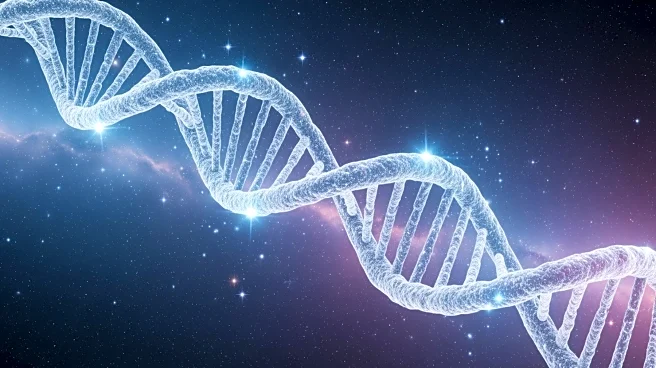What's Happening?
A new guide to 'astroimmunology' has been published, detailing how spaceflight stressors such as microgravity and radiation significantly compromise the human immune system. The guide, published in Nature
Reviews Immunology, synthesizes data from various missions to establish a framework linking these stressors to immune dysfunction and latent viral reactivation. It proposes a clinical roadmap for astronaut health protection, including advanced in-flight immune monitoring, tailored vaccination protocols, and the development of 'space nutraceuticals' to counteract immune compromise. Insights from this research suggest that spaceflight-induced immune alterations mirror aspects of the natural aging process, potentially offering novel perspectives for terrestrial aging research.
Why It's Important?
The findings are crucial as humanity plans to return to the Moon and venture to Mars, highlighting the need to protect astronauts from severe immune system damage. The research not only aims to safeguard space travelers but also offers insights into the aging process on Earth, as spaceflight-induced immune changes resemble those seen in aging. This could lead to advancements in aging research and healthcare. The development of astroimmunology as a subdiscipline is essential for future space missions, ensuring the health and safety of astronauts as they explore life beyond Earth.
What's Next?
As new commercial space stations are planned and missions to the Moon and Mars become realities, the implementation of the proposed clinical roadmap will be critical. Researchers will continue to study the effects of spaceflight on immune function, particularly in new environments like the Moon's gravity and Martian dust exposure. The establishment of standardized biobanking for space travelers will aid in ongoing research. The findings may also influence aging research on Earth, potentially leading to new strategies for maintaining cellular health as humans age.
Beyond the Headlines
The research highlights the ethical and scientific responsibility to protect astronauts from health risks associated with space travel. It underscores the importance of interdisciplinary collaboration in addressing complex challenges posed by space exploration. The parallels between spaceflight-induced immune changes and aging could lead to breakthroughs in understanding and mitigating age-related health issues, benefiting society at large.









